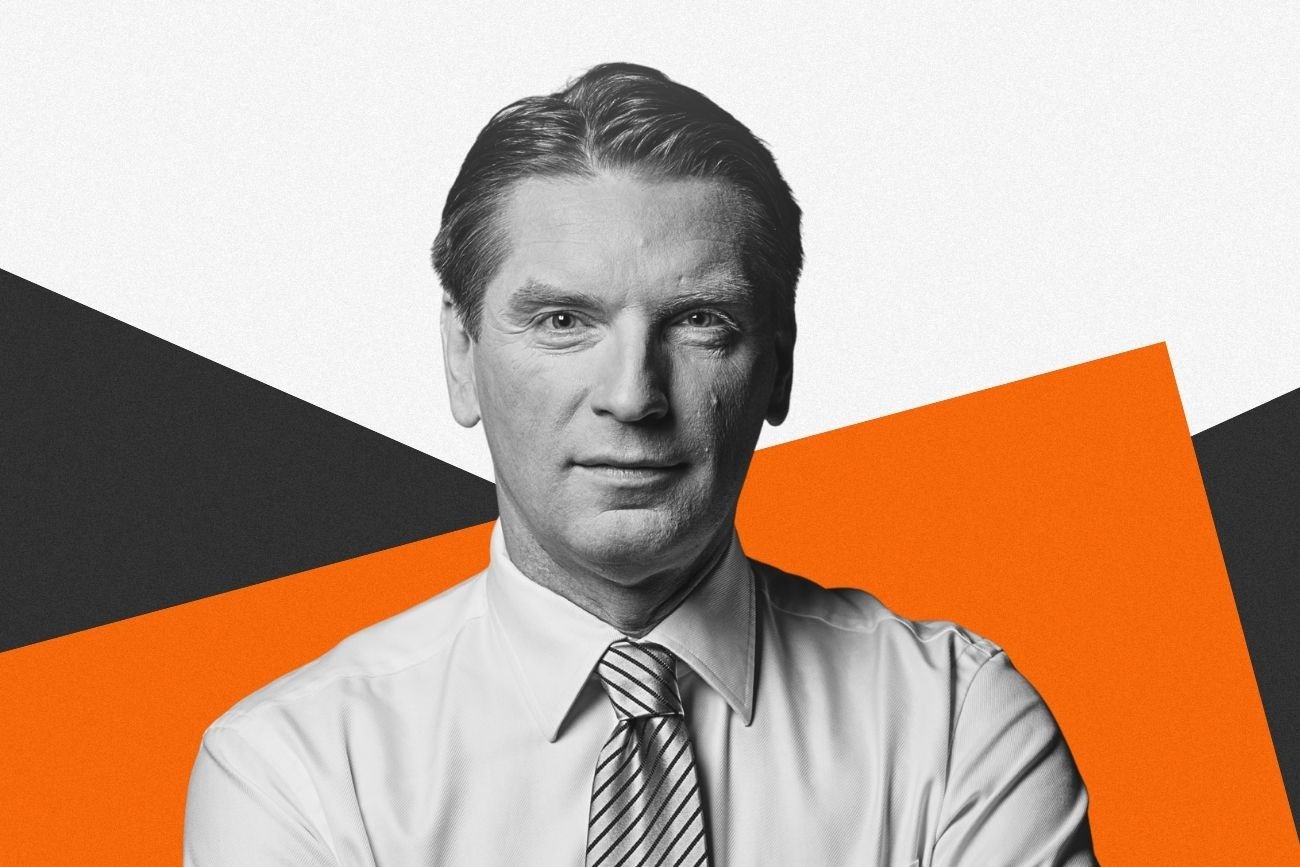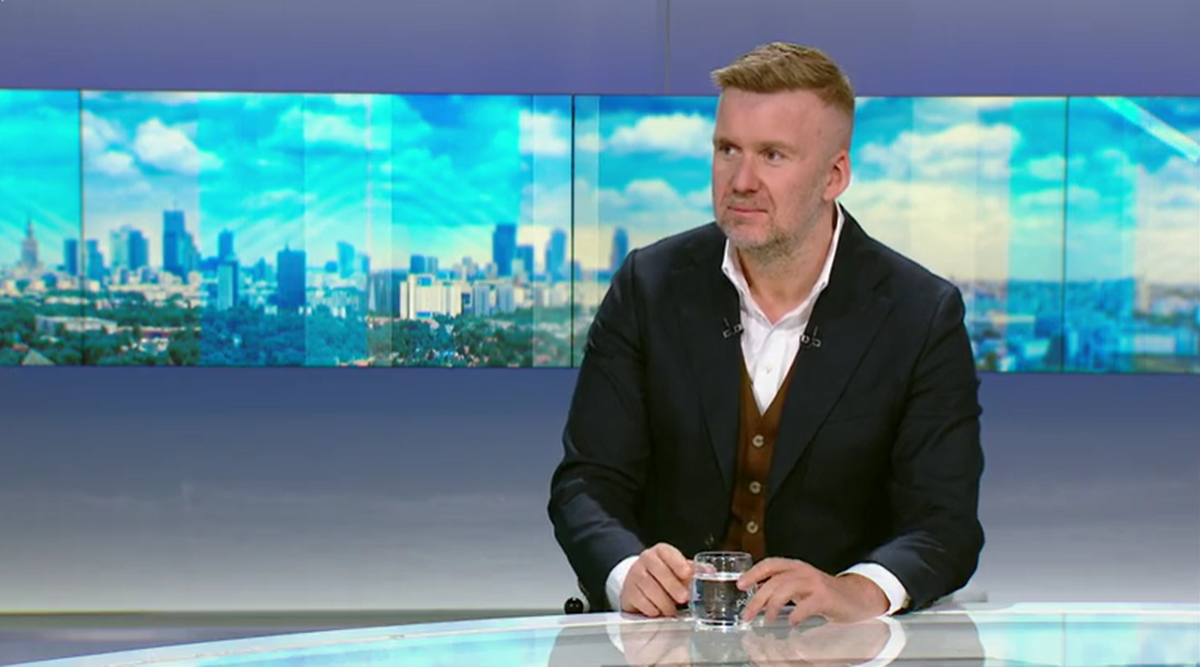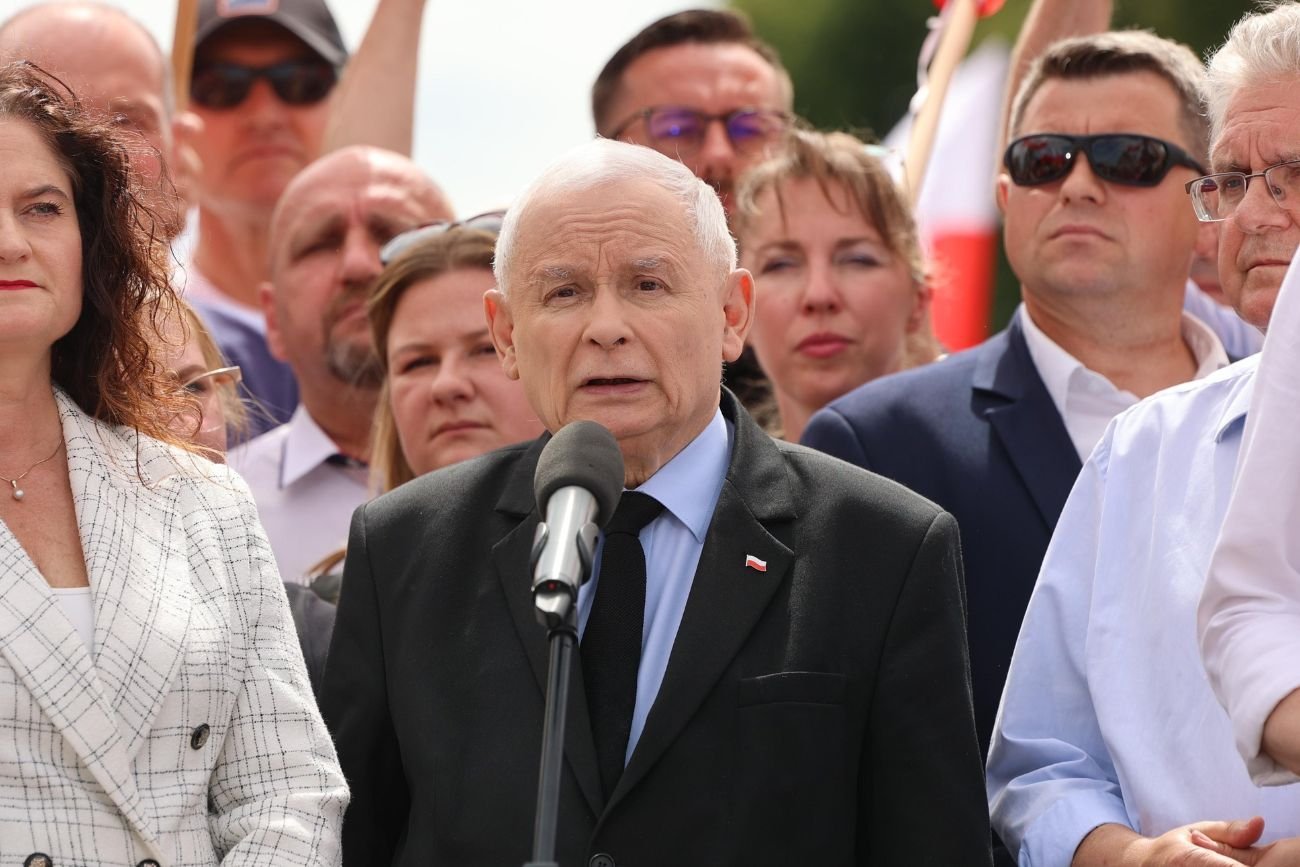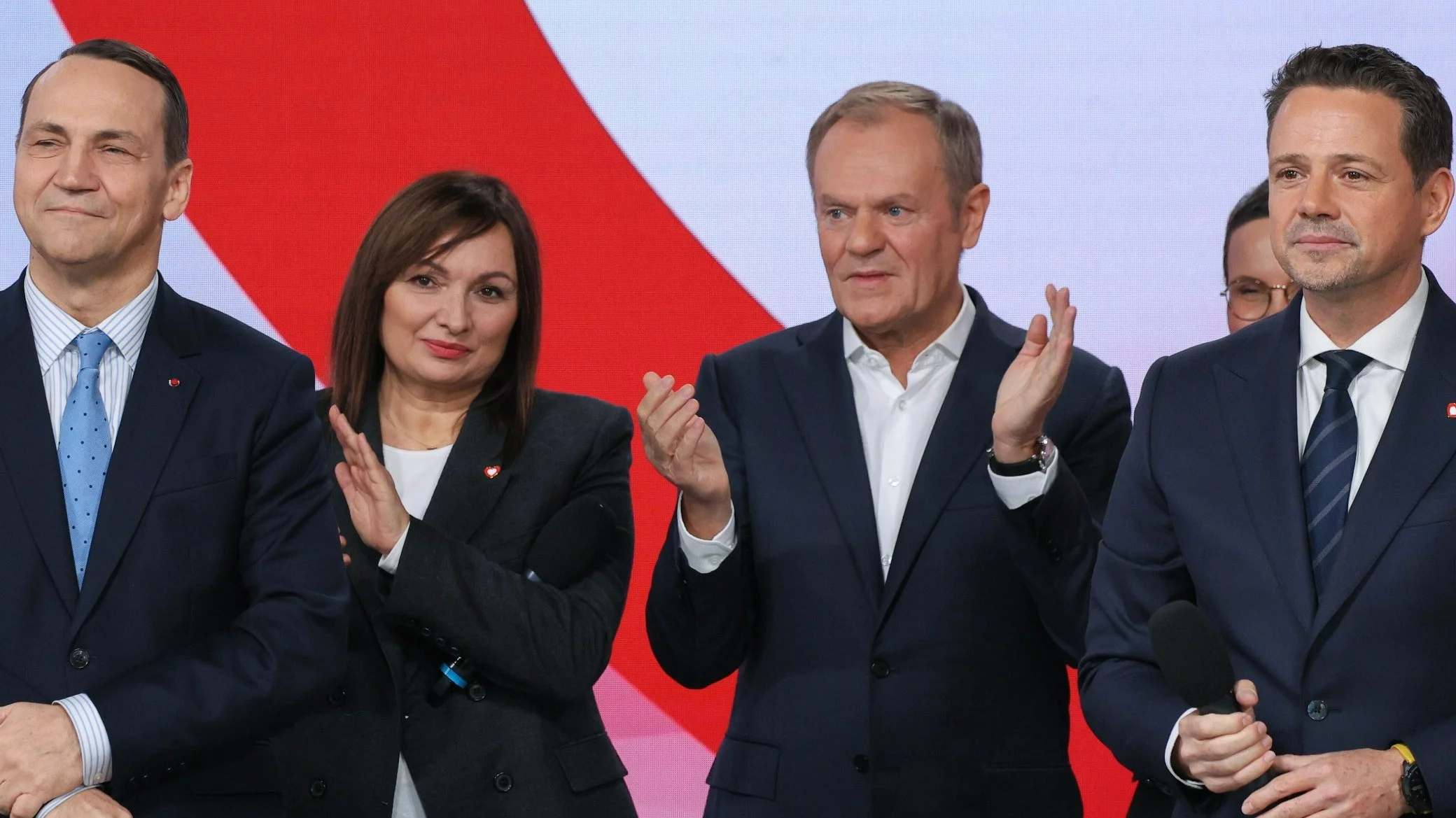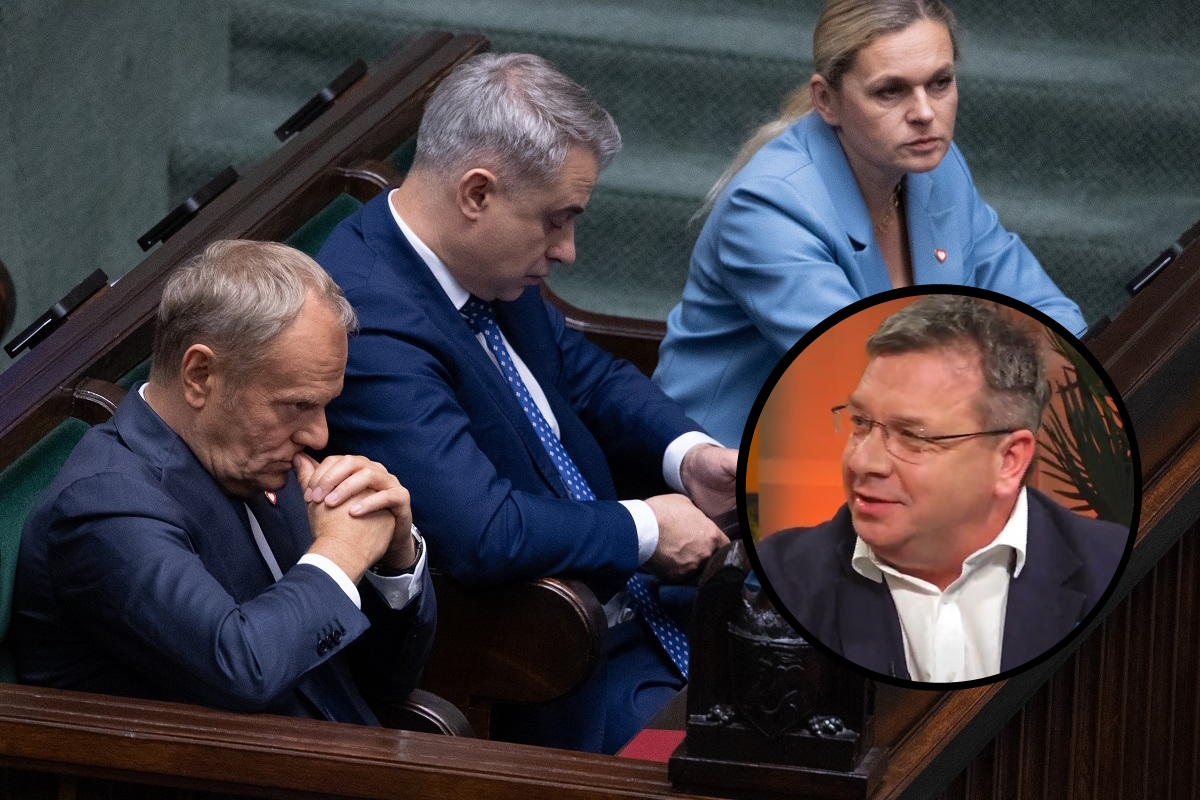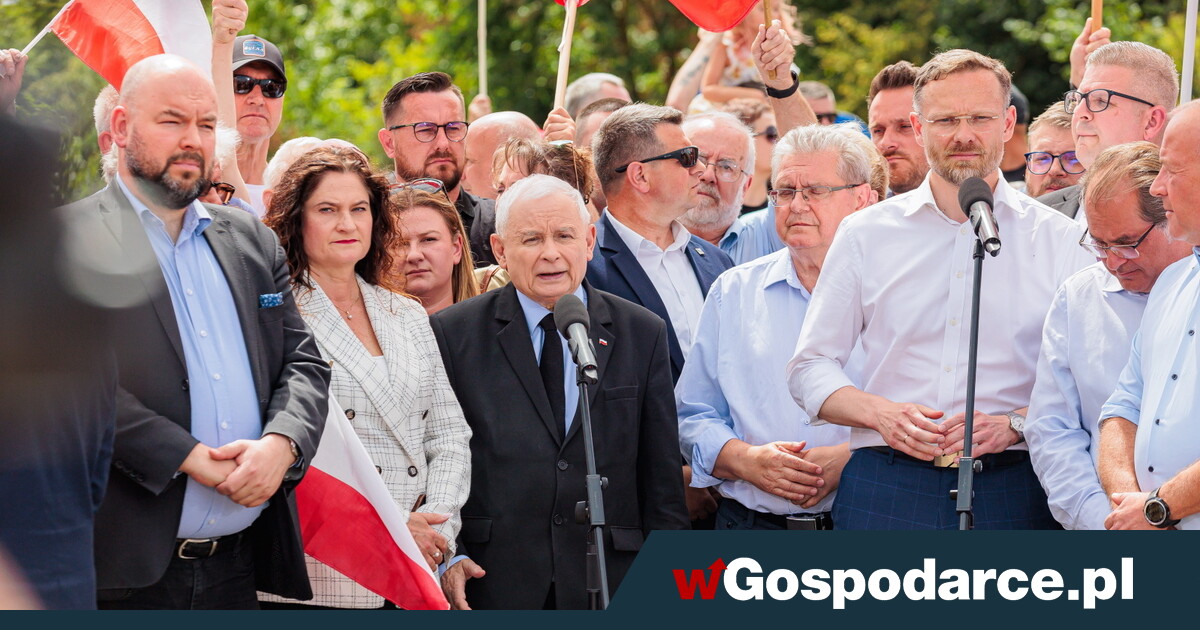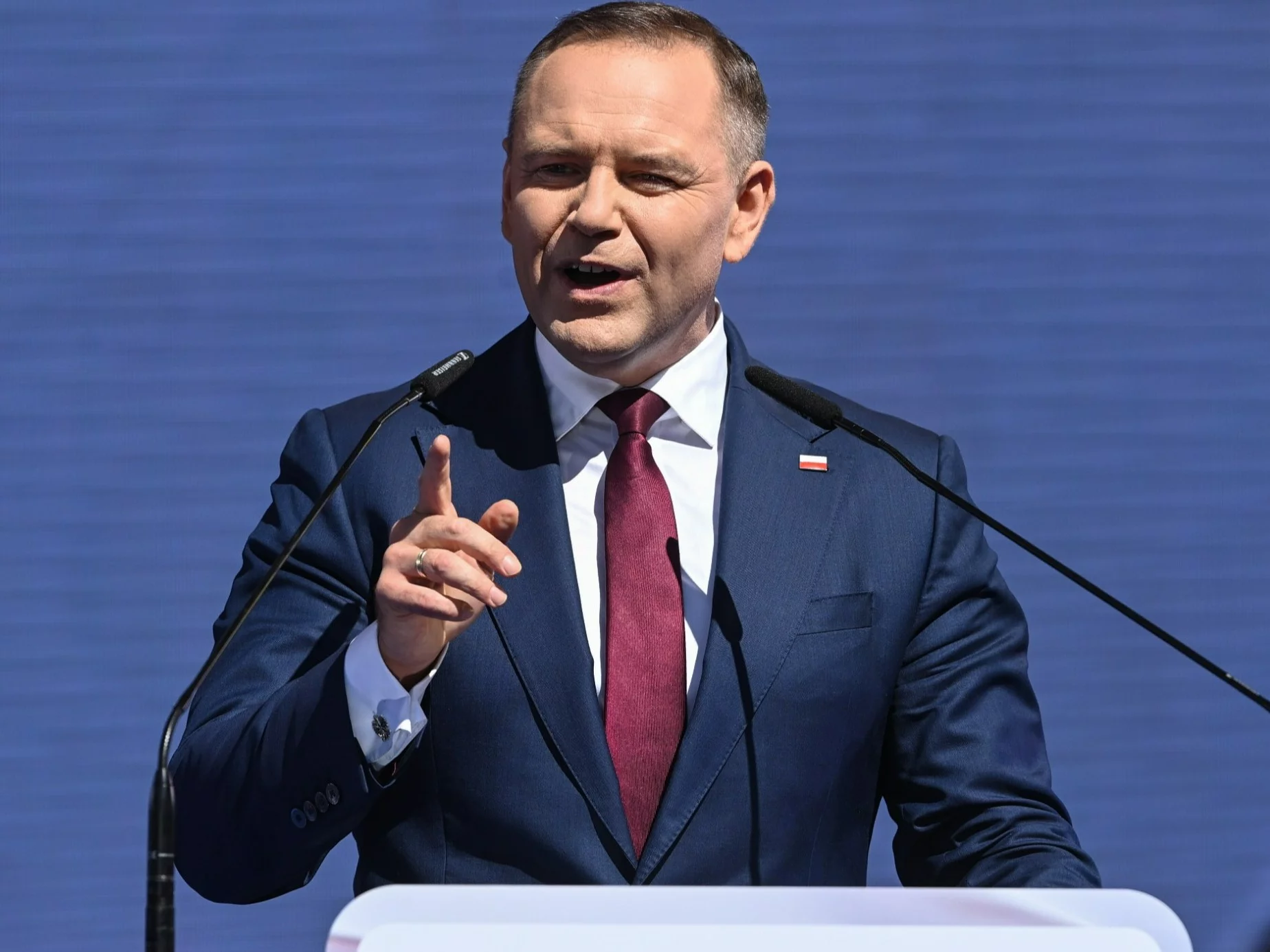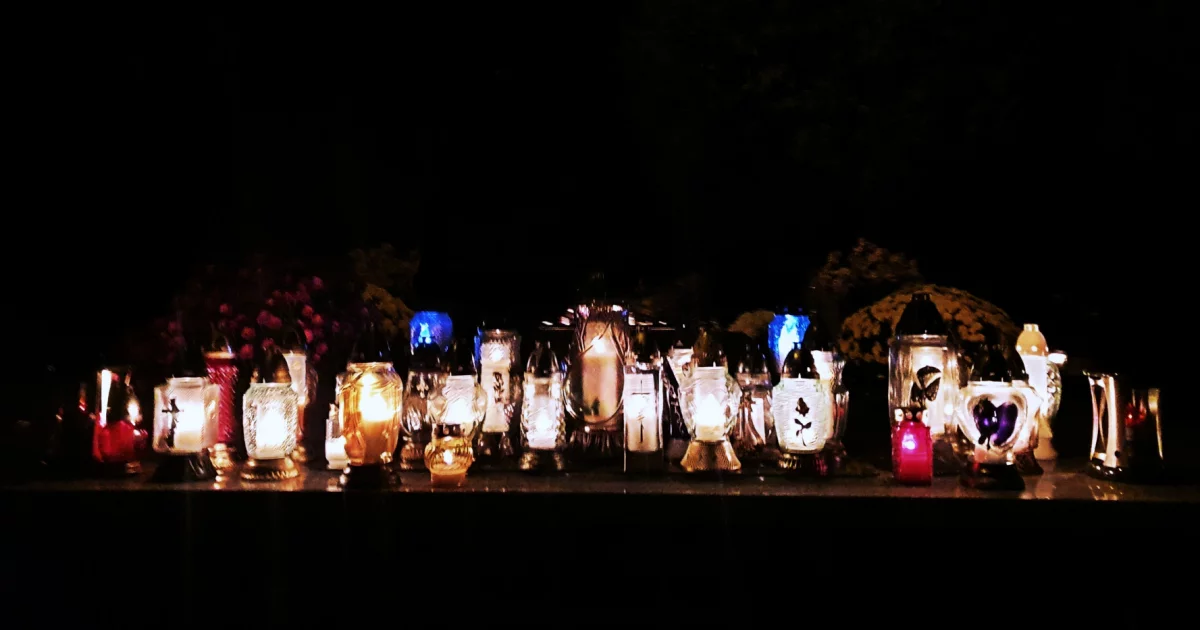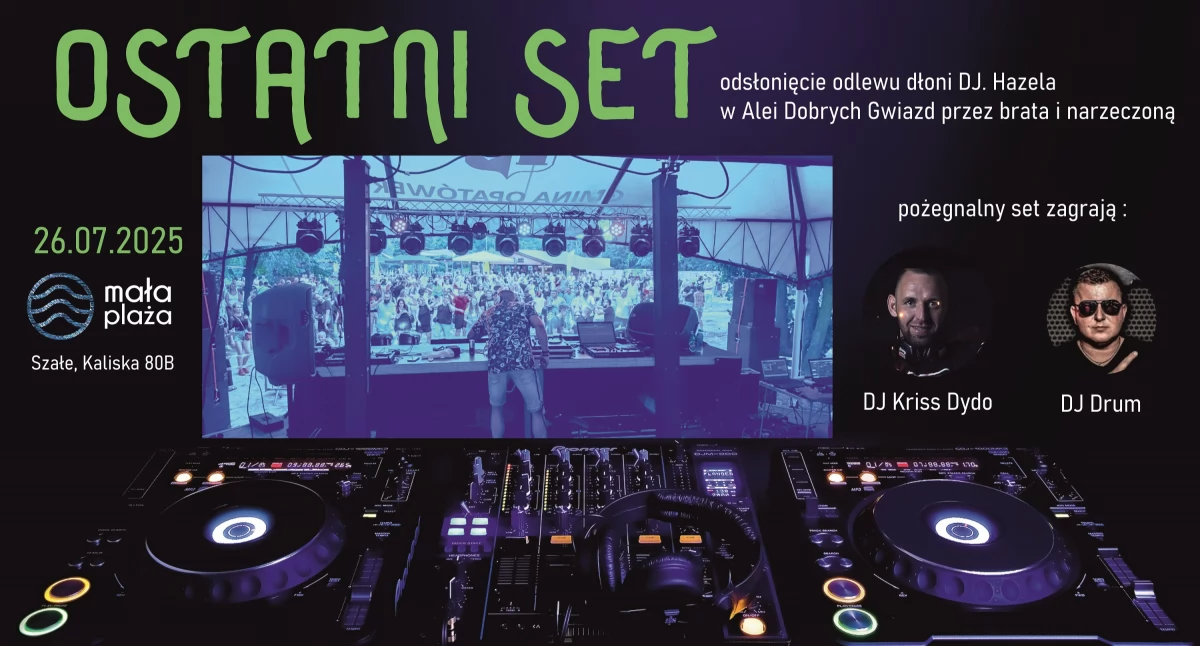It's been a long time. 1 of those moments that doesn't happen all year, and if anything, they change the rules of the game for decades. A social test that doesn't have an easy way out. And the question that hangs in the air like dense smoke after the marketplace hall fire: did we pass the citizenship test?
Within a month, we have twice faced a choice of direction in which we want to follow as a collective. We heard a lot – that security, that dignity, the future of young people, that repair the state or defend against chaos. That 1 must defend values – but what values? For whom and against whom? You can effort to describe it all in graphs and graphs. But sometimes philosophical questions are more precise.
Ideas Time
And so, on the 1 hand, the proposal – elegant in tone, average in content – based on balance, rationality and trust in the institutions was outlined. Public action was seen here as the art of prudent management of complexity, in which compromise is not weakness, but a condition for coexistence. This approach close to Aristotle, convinced that the best systems are those that avoid extremes – they combine freedom with responsibility, deliberalization with applicable virtue.
 Aristotle
AristotleBut Aristotle wasn't naive. He knew that all form of order carries a hazard of illusion. He would ask, ‘ Is this form of order truly for the common good, or is it simply preserving existing inequalities? Is it not besides easy to satisfy with formal harmony by ignoring marginalized voices?
Rawls' silent voice was besides heard in consequence – the 1 whose interest was not only the consent, but the conditions of its formation. Social justice demanded a look under the veil of ignorance—one who does not know whether to draw life in the center or on the outskirts. In this sense, the procedure was not only a tool but an ethical measure: Would you agree to the rules of the game without knowing which side of the table you would sit on?
It was a cautious policy, but not indifferent. delicate to context, but not opportunistic. Between regulation and freedom, between an individual and a structure, she sought a point of balance that does not mean giving up ambition, but the ability to perceive besides to those who do not shout.
On the another hand, there was a communicative about the nation, values, request for rooting. Independence, as pertained to a rhetorical figure of a advanced degree of holiness, gained the position of not so much the goal as the beginning. From this beginning the state emerged – not as an administrative institution, more a relic of identity, composed of pathos, past and sacred suffering.
And in the background Plato sounded – the 1 from caves and the hierarchy of souls. And the belief that only a state based on eternal, unchanging values, ruled by those supposedly able to admit the common good, has the right to claim the fact and order. Next door Schmitt sat with his dark elegance of distinction: his – alien, us – them. And he didn't request an idea. All we had to do was delimit. due to the fact that politics starts erstwhile you point out the enemy – as if only in the counter to the another you can feel the burden of your own existence.
Because this form of reasoning doesn't request to talk. He's not looking for common ground. She sets limits, ritually separates the planet into parts to be accepted and rejected. A clear division that gives a deceptive sense of security. The state is not to perceive – it is to recognize. Do not express pluralism – only reduce it. 1 truth, 1 story, 1 version of the community. Only the truth, which does not let opposition, becomes a dogma. And the community built on exclusion sooner or later needs to be cleansed of someone.
 Plato
PlatoThere was besides a voice, and this amazingly loud, populist proposal based on strength, strategy and distrust of compromise. Here the public sphere was not a space of conversation, but a battlefield. It was victory, not consensus. It is Machiavell's echo, who felt that politics request not be moral – it must be effective. The ability to control collective sentiments has become a virtue, not empathy toward them.
The state was to go back – not out of fear, but out of conviction. That he doesn't know better. That all regulation is simply a false motion of care for which there is coercion. Bureaucracy did not solve problems – it multiplied them. It wasn't about caring, it was about freedom. And like freedom, and a free marketplace that appeared as a self-conscious organism, order without a designer, knowing needs better than any office. Central planning? It's not just a mistake, it's an effort on individual sovereignty. In this world, taxation was a form of plunder and solidarity was an echo of coercion. Justice? Yeah, but market. Spontaneous. 1 who doesn't request a minister, but a silence in which the prices themselves fall into a reasonable pattern.
And besides Nietzsche, who warned against nihilism diluted with modernity. In his spirit it was said: west decays, liberalism devours its own foundations, human rights is simply a story created by the weak to bind strong hands. There are no facts, there are only interpretations – said the same Nietzsche and went on. To remind you, Nietzsche had a pastor's brother and an anti-Semitic sister. He died without a head. Actually, with a head that stopped listening to him. No wonder that then different – from Heidegger to Agamben – they tried to figure out what he was actually trying to say. And if he didn't say it against them.
But and Machiavelli warned: “Who can’t foretell falls down. And who knows only provocation – will not build a unchangeable order. due to the fact that there was no area for the weak in this imagination of freedom. Compassion became extravagance, and redistribution became an immoral act of coercion. Equality? Unnecessary. Justice? It's only procedural. The strategy worked as long as you had the strength not to sink into it. Hayek whispered about spontaneous order, but no 1 asked who was profiting from this chaos. due to the fact that if the marketplace is nature, then man – only resource. And if everything can be valued, does anything else have value?
 Niccolò Machiavelli
Niccolò MachiavelliAt the center there was an echo of personalism – this doctrine that promises that politics can be more than a conflict for power and violence. Which speaks of the dignity of the individual, but besides of the commitment to the community. It's like politics is expected to be like a household dinner, where everyone has a right to vote, and at the same time they gotta consume what's on the table. Eat the meat, leave the potatoes. Although now this meat becomes rather unfortunate.
But all utopia has its weak spots. This community is inactive in motion, never given erstwhile and for all. And erstwhile it becomes just an empty slogan, it easy turns into a comfortable smokescreen – not to talk about real conflicts and uncomfortable elections. Here, the state is not a cold machine, but a surviving organism, where institutions service regular care, and power is not a whip, but a burden – although sometimes more symbolic than real. It is simply a task requiring patience and humility, but without inexpensive triumphs and spectacular gestures. After all, ethical policy can be as hard as carrying a cross – it is hard to hide that it is frequently more like parading with it on the shoulder than real lifting.
From another order – not necessarily more real – besides a imagination of a community separated, like a country under partition: 1 part dreams of a welfare and tender state, the another dreaming of revolutions and factories, the 3rd – of pensions, warm interiors and old cleanings. Rousseau would mention something about a social body – unnatural, yet necessary. A consensus that is not out of business, but out of belonging. Freedom, which is not a choice – only a relation.
But the social body easy succumbs to necrosis. It is adequate that its boundaries are determined by a politically correct but impermeable language. Or that alternatively of equality you get equal space in the inequality strategy – the same seats in another room. Rousseau came back here like a remorse: society is not a sum of interests, but a fiction that must be sustained constantly – or it will fall apart.
And the unfortunate Marx. Shameful patron – as if his name should not be spoken in the era of startups and prosthesis collections. But he besides recalled: it is not adequate to talk about the community if you do not realize property. due to the fact that property – the real one, not the 1 with the contract for the work – is not a law, but a condition of existence. Without her, there is no subject. There is only a function – interchangeable, vulnerable, transparent.
And then Butler. She carried words like cracked mirrors: performance, carnality, recognition. Each of them could build – or hurt. What if the language of concern becomes force itself? If fresh forms of control are introduced in the name of empathy – little visible but more intimate?
Fraser tried to redistribute it: redistribution and recognition, capital and dignity, structure and emotion. But even today, she would gotta ask: how long can a political program be built on a care metaphor if no 1 believes that the state can take care of anyone?
It was a beautiful story. Even beautiful. A planet built on care, not competition. At work – but the sensible, worthy, paid. On equality, which would not be an empty repetition, but a structure breathing justice. But beauty is besides a strategy – especially erstwhile it is essential to cover the deficiency of effectiveness. The concern – if not working – ceases to be value. It's becoming a ritual. And rituals, as we know, can turn suffering into aesthetics.
House divided
In the end, 2 visions collided, or alternatively 2 ways to live that are not going to work out. A home divided by an ideological wall.
The first school of prudence was based on rationality and balance. She said that politics request not be dramatic, full of pathos and existential exultations. She can be calm, technical, responsible. It can trust on repairing structures, rebuilding the regulation of law, dialogue.
 Friedrich Nietzsche
Friedrich NietzscheCompromise as the highest virtue? Sounds like an excuse for those who fear hazard and like rotten consensus.
But it was a average voice – the belief that politics is not a place for large metaphors, but for everyday, frequently boring, work. That you don't gotta make all decision with a quote from Norwid or teardrop your robes over the constitution. Just follow it.
That is why this imagination was both humble and demanding. She said, "We do not promise salvation, but we can guarantee that the state is not oppressive. We won't give you any sense of life, but we will effort to make the conditions in which you will search it out.
On the another hand, there was a proposal more emotional, possibly even romantic. A communicative about a nation, values, the request for rooting. past as identity, suffering as currency of authenticity, community as heritage, relic of identity – closed but safe. Hierarchical, but stable.
Because it was not about concrete solutions, but about the vision: that Poland is more than a state. That he has a soul. And that this soul speaks through suffering, faithfulness, combat. Values? They're non-negotiable, like a decree from heaven. Loyalty above all else, for past and safety do not tolerate opposition. No frosted balance, just sharp boundaries and clear stakes. It is simply a "strong hand" policy that sweeps under the carpet of those who want to know or think besides much.
 John Rawls
John RawlsIt was an exclusion proposal. But besides attractive – due to the fact that it offered a sense of meaning. And a man needs meaning more than food. Especially erstwhile he feels threatened.
Between these 2 poles another ideas – equality, freedom, social welfare – break into the language we describe the world. And the language, as we know, is not transparent. It creates reality before we do anything. He determines who is simply a citizen and who is simply a parasite. Who deserves compassion and who deserves contempt. Who's talking and who's not talking?
And what did we choose? possibly not just the fresh resident of the palace, but the way we think of ourselves – who are we and who do we want to become?
Because being a citizen is not only receiving sacred signals of power or participating in the election festival of slogans, but the everyday art of responsibility, even erstwhile convenience and cynicism dictate something else.
This is not a choice of colour of favourite banners, but a fundamental question: do we like a policy that smooths out conflicts and tolerates inequality, or 1 that, without pardon, cuts out opponents and closes doors?
And here comes the dilemma of the Schrödinger cat: did we actually stand up to the challenge, or did we like to pretend that nothing happened?
And do we truly know what planet we want to live in?
Because Schrödinger's cat – this unfortunate, locked in a box that lives and does not – is large in politics.
And possibly this is what a citizen looks like today: like this cat – supposedly engaged, but absent. With 1 hand he votes, the another scrolls, and the 3rd – if he had it – he looks away. We know something, we decide, but truly – we don't know if it's a choice or just a reflex. Whether it's democracy or just a cyclical ritual.
As a society, we have late seemed to function in a akin state of suspension. Between “I have enough” and “you gotta do something”, between the belief that everything is simply a farce and the hope that something will change.
Only that in this box we are sitting in, there is simply a long time of deficiency of oxygen – and pretending that it is possible to proceed without consequences is as comfortable as dangerous.
Voting time is over.
Time to think – just beginning.

